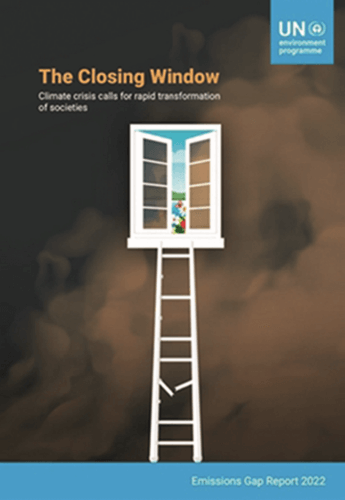
A new report from the United Nations Environment Programme (UNEP) says that efforts as part of the Paris Agreement goal of limiting global warming to well below 2°C are not enough, and that policies currently in place point to a ‘devastating’ 2.8°C temperature rise by the end of the century. Meanwhile, the International Energy Agency says that a peak in fossil fuel use is in prospect by the mid-2020s, in line with the timespan many UK operators have set to start their switch to alternate power sources.
The UNEP report is the 13th in an annual series that provides an overview of the difference between where greenhouse emissions are predicted to be in 2030 and where they should be to avert the worst impacts of climate change. It shows that updated national pledges since COP26 held in Glasgow in 2021 make a negligible difference to predicted 2030 emissions and that countries are far from the Paris Agreement goal of limiting global warming to well below 2°C, preferably 1.5°C. Policies currently in place point to a 2.8°C temperature rise by the end of the century, and implementation of the current pledges will only reduce this to a 2.4-2.6°C rise, according to UNEP.
The report says that only an ‘urgent system-wide transformation’ can deliver the cuts needed to limit greenhouse gas emissions by 2030, requiring a 45% reduction compared with projections based on policies currently in place.
“The world must cut emissions by 45% to avoid global catastrophe”. Solutions to transform societies exist, but the time for collective, multilateral action is now,” the Emissions Gap report says.
Meanwhile for the first time, the IEA’s World Energy Outlook report says that a scenario based on prevailing policy settings will see global demand for each of the fossil fuels exhibiting a peak or plateau by the mid 2030s. It predicts that coal use will fall back within the next few years, while natural gas demand reaches a plateau by the end of the decade, and rising sales of electric vehicles will mean that oil demand levels off in the mid-2030s.

